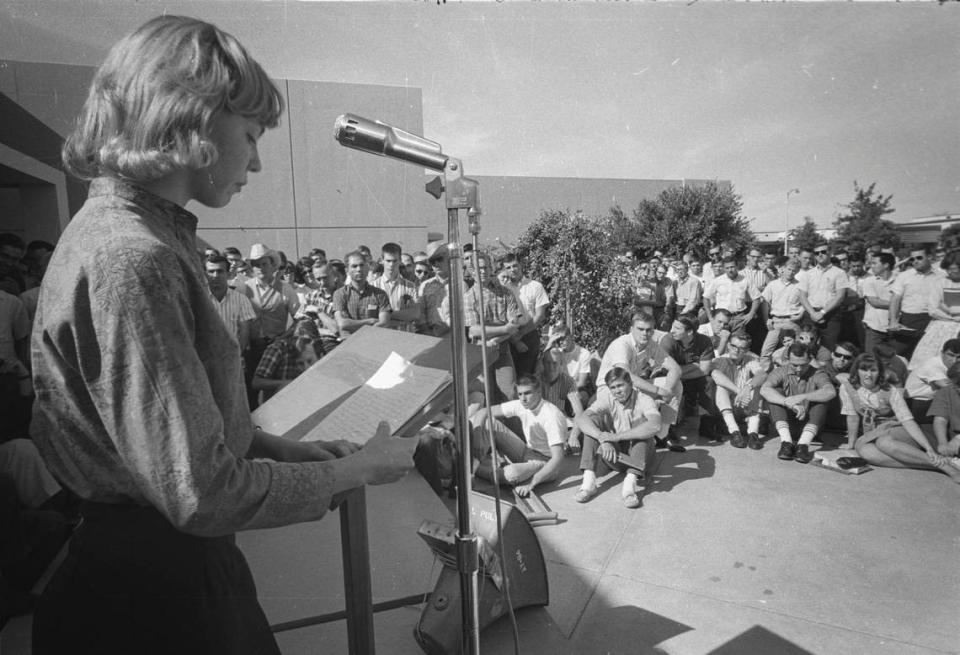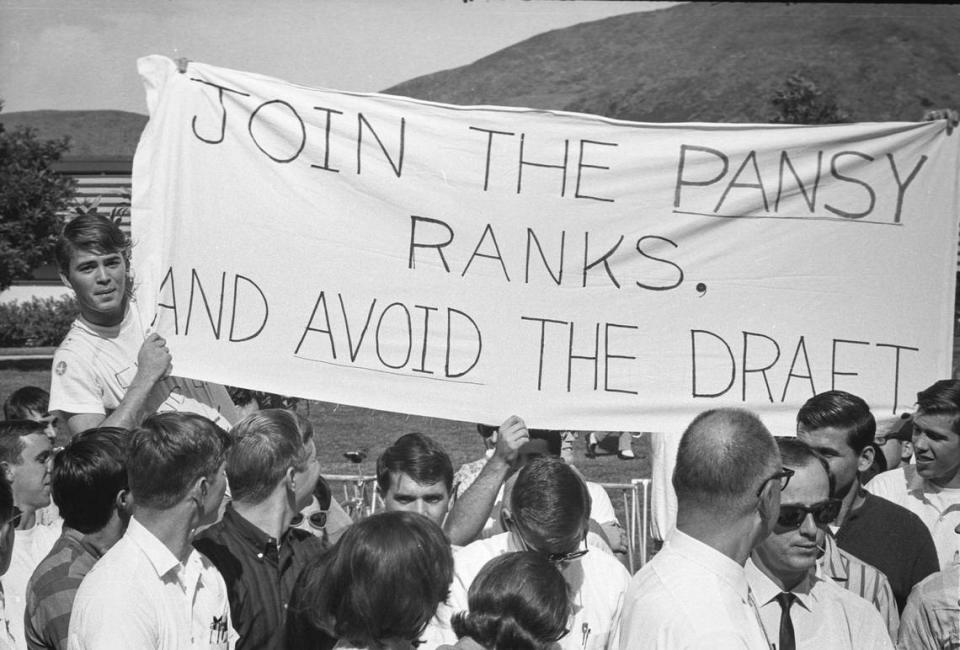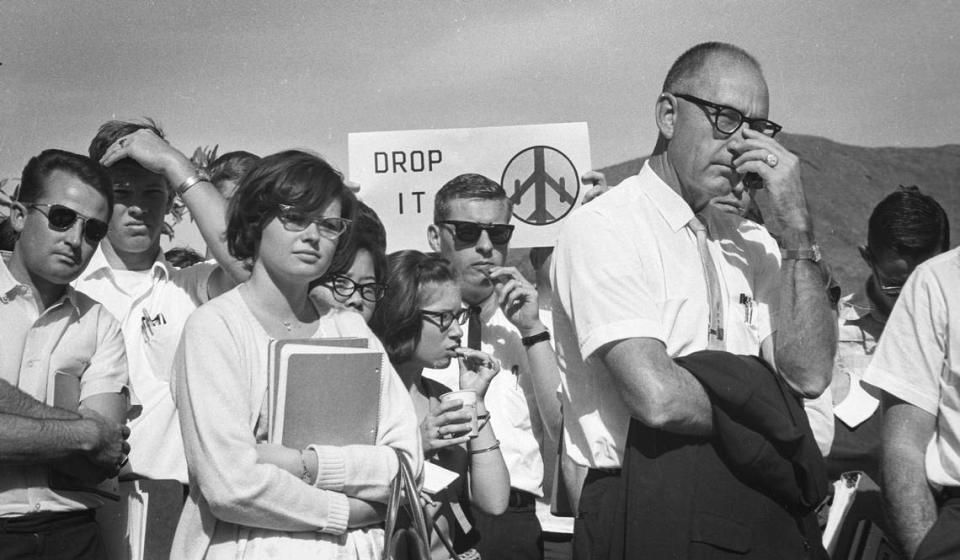Cal Poly has history of protests. Unearthed photos show large Vietnam War debate on campus
Cal Poly has been the site of multiple protests this week.
California State University system faculty picketed across the state in support of a strike, which ended after one day. Then eight pro-Palestine protesters were arrested in front of the university’s Recreation Center on Tuesday.
The campus has been the scene of debate and protest before.
During the Vietnam War, the campus was the site of many events related to the issue dividing the nation.
None of that era’s protests were as turbulent as those at UC Berkeley or as deadly as the Ohio National Guard shooting of students at Kent State University in 1970. But the issue was more than an abstract concept.
The student newspaper, El Mustang or Mustang Daily as it was variously known during the era, carried job recruiting advertising for Boeing, Dow Chemical and the U.S. Army Reserve officer training program.

Six Cal Poly students died in the war, making up a large percentage of the 29 veterans who died from this county.
And according to Cal Poly Archives, over 50 Vietnamese students enrolled at the university between 1950-71.
More recently, the retired CEO of defense contractor Raytheon and his wife have made significant contributions to Cal Poly, including a $100,000 donation to the Cal Poly Journalism Department to remodel the student run television studio in 2017.
In October 1965, Telegram-Tribune photographer Jim Vestal covered a Cal Poly debate about the Vietnam War, but the date on the negative sleeve was smudged and I couldn’t find a story in the paper in that time frame.
This might even be the first time these photos have been published.
This debate was early in the escalation of the war by U.S. President Lyndon Johnson.
Fortunately, digitized versions of El Mustang had a story and carried a photo that was similar.
Both the Telegram-Tribune and El Mustang photographers took pictures of a homophobic banner being held by hecklers that read, “Join the pansy ranks, and avoid the draft,” because gay men were barred from military service.
The El Mustang story Oct. 22, 1965, by F.D. Jeans said in spite of the heckling by two students, the event had several speakers who covered a wide range of viewpoints.
The debate took place near the campus snack bar in front of 350 students and staff.

Biological sciences junior Donna Cotner made an appeal to conscience declaring “the U.S. is guilty of violating international accords, and this means that we are all guilty — you and I.”
“It was our man in Saigon (now Ho Chi Minh City), Ngo Dinh Diem, who broke the Geneva Accords after the French pulled out in 1954,” she said.
She described the suppression of Buddhists and other groups.
Two years earlier, the world had been shocked by photographs of a monk who had burned himself to death in protest of the South Vietnamese government’s persecution.
Cotner called for withdrawal and asked, “What can we lose?”
“Only some military contracts, and in turn, we will gain world-wide respect,” she said.
Manuel Jarret, a mechanized-agriculture senior took the opposite view.
“Yes, the Geneva Accords called for free elections, but how can you have free elections when over 50% of the country has been under communist domination for the past 11 years?” he said.
While he spoke, the two hecklers holding the banner moved through the crowd.

In the years ahead, Johnson would send an increasing number of troops and weapons to Vietnam. More than 58,000 American service members died in the war. An estimated 2 million Vietnamese civilians died, and over 1 million in the various military groups.
Nearby countries suffered heavy casualties as well.
Presbyterian campus minister Bruce Tjaden seemed to bridge both sides of the issue and crowd at the Cal Poly protest.
“Our position may not be infallible, true or moral, but we must be realistic,” he said. “We cannot just pull out. On the other hand, further escalation is not the answer either. The bomb is not the automatic answer to our problems.”

